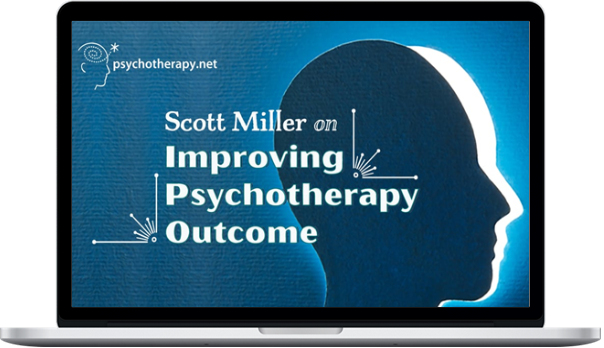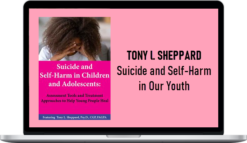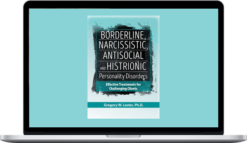Scott Miller – Scott Miller on Improving Psychotherapy Outcome
$39.00 $11.00
»Delivery: Within 24hs
Description
Scott Miller – Scott Miller on Improving Psychotherapy Outcome
Description Of Scott Miller on Improving Psychotherapy Outcome by Scott Miller
It is not practice alone that makes for better therapy or builds better therapists. According to Scott Miller, it is the methods of “deliberate practice,” gleaned from his study of experts and expertise, that will help you to improve your clinical skills and therapeutic success rate.
For Dr. Miller, focusing on common factors in therapy such as alliance, collaboration, empathy, and expectation are clearly necessary, but insufficient for therapeutic change. Nor will an endless stream of CE courses, therapy lectures or hours “behind the couch” make you a better therapist. Research shows that most therapist don’t get better with experience; in fact on average they become less effective! Successful psychotherapy, his decades of research confirms, is about “deliberate practice,” the art and science of becoming an expert. He offers guidance and strategies for a clinical self-improvement program to use before, during and after sessions with your most challenging clients, regardless of diagnosis, presenting problem, or your clinical orientation.
Miller teaches you that by engaging in deliberate practice– the strategy of clinicians he refers to as super-shrinks– you can re-focus on areas of clinical weakness rather than simply reproducing areas of strength. He also discusses the skills necessary to build a tangible and measurable game plan for identifying and eliminating those weaknesses, evaluating clinical performance, and optimizing therapeutic outcome.
In Depth
Dr. Miller tells us that 90% of therapeutic change, both positive and negative, occurs within the first nine sessions. Therefore, in conjunction with deliberate practice, we need to effectively and efficiently track client satisfaction and progress to avoid premature termination and to optimize treatment outcome. His Feedback Informed Treatment (FIT) does just that by providing clinicians with concrete assessment tools such as the Outcome Rating Scale (ORS) and Session Rating Scale (SRS).
These tools will help you to remain focused on the therapeutic alliance, add or remove services, renegotiate treatment goals or if necessary, refer the client. In contrast to the long-held notion that many people simply get better on their own, the verdict, Miller tells us, is in: psychotherapy works! However, we must remain continually attuned to our own skill development and our client’s progress.
By watching this interview, you will:
- learn to recognize the critical role of common factors in strengthening the therapeutic alliance.
- be able describe the basic premises and strategies of (Feedback Informed Therapy) FIT.
- learn to utilize the principles of deliberate practice to enhance your psychotherapeutic outcome.
Specs
Length of video: 1:14:19
English subtitles available
Bios
Scott Miller, PhD is co-founder of the Institute for the Study of Therapeutic Change, a private group of clinicians and researchers dedicated to studying “what works” in mental health and substance abuse treatment. Dr. Miller conducts workshops and training, and speaks at conferences worldwide. He is the author of numerous articles and co-author of The Heart and Soul of Change: What Works in Therapy, The Heroic Client: A Revolutionary Way to Improve Effectiveness through Client-Directed, Outcome-Informed Therapy, and the forthcoming What Works in Drug and Alcohol Treatment.
More courses from the same author: Scott Miller
Delivery Policy
When will I receive my course?
You will receive a link to download your course immediately or within 1 to 21 days. It depends on the product you buy, so please read the short description of the product carefully before making a purchase.
How is my course delivered?
We share courses through Google Drive, so once your order is complete, you'll receive an invitation to view the course in your email.
To avoid any delay in delivery, please provide a Google mail and enter your email address correctly in the Checkout Page.
In case you submit a wrong email address, please contact us to resend the course to the correct email.
How do I check status of my order?
Please log in to HealingCourse account then go to Order Page. You will find all your orders includes number, date, status and total price.
If the status is Processing: Your course is being uploaded. Please be patient and wait for us to complete your order. If your order has multiple courses and one of them has not been updated with the download link, the status of the order is also Processing.
If the status is Completed: Your course is ready for immediate download. Click "VIEW" to view details and download the course.
Where can I find my course?
Once your order is complete, a link to download the course will automatically be sent to your email.
You can also get the download link by logging into your HealingCourse account then going to Downloads Page.
Related products
Total sold: 1
Total sold: 3
Total sold: 1
Total sold: 2









